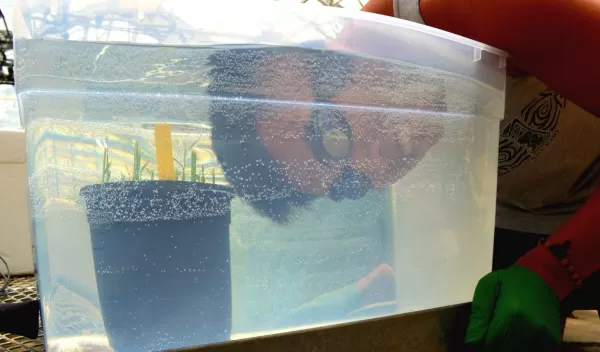
Grains in the rain
Of the major food crops, only rice is currently able to survive flooding. Thanks to new NSF-funded research, that could soon change -- good news for a world in which rains are increasing in both frequency and intensity.
The research, published in Science, studied how other crops compare to rice when submerged in water. The study found that a wild-growing tomato, a tomato used for farming, and a plant similar to alfalfa all share at least 68 families of genes that are activated in response to flooding.
Rice was domesticated from wild species that grew in tropical regions, where it adapted to endure monsoons and waterlogging. Although some of the genes involved in that adaptation exist in the other plants, they do not switch on when the roots are being flooded.
"We hope to take advantage of what we learned about rice in order to help activate genes in other plants that could help them survive waterlogging," said study lead Julia Bailey-Serres, a University of California, Riverside geneticist.
The biologists looked at the genes in root tip cells to understand whether and how the genes were activated when covered with water and deprived of oxygen.
It's the first time a flooding response has been studied in a comprehensive way across different species, the researchers said.
"These exciting outcomes show that long-term commitment to basic research has incredible potential for real-world impact," says Anne Sylvester, a program officer in NSF's Division of Integrative Organismal Systems. "To enable the discovery of how roots respond to flooding, these scientists developed tools and resources that are now available to all plant researchers and that have the potential to improve crop resilience."
